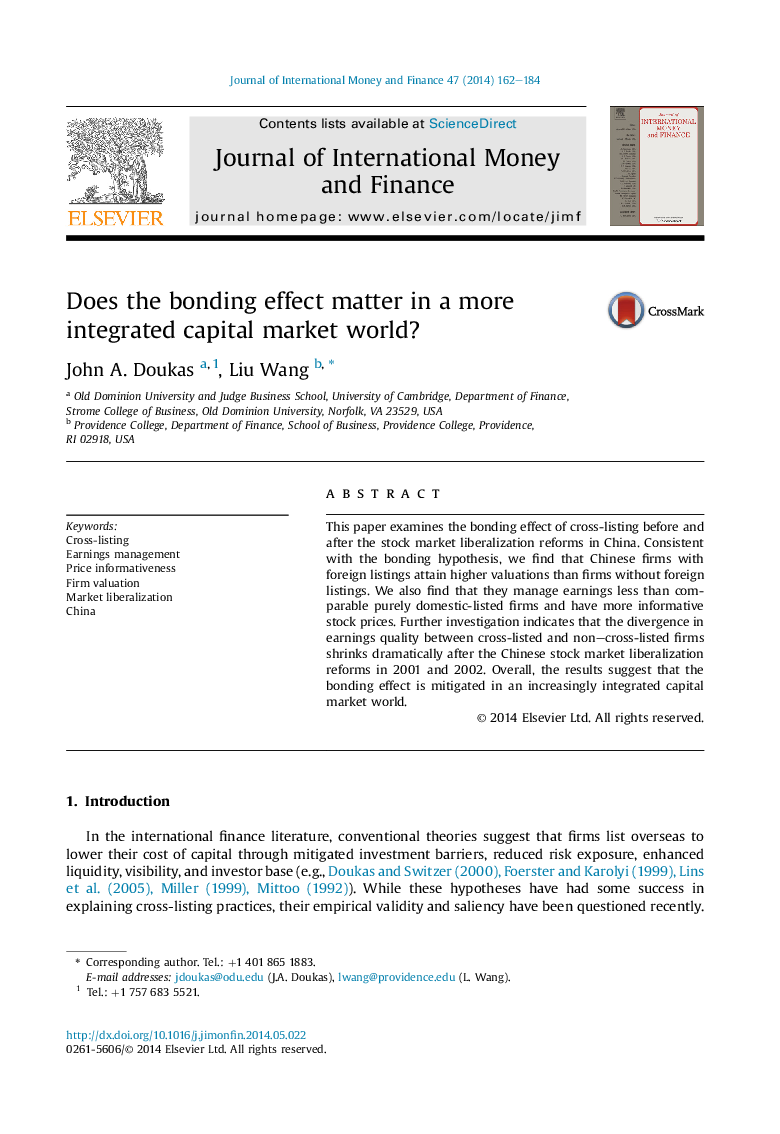| Article ID | Journal | Published Year | Pages | File Type |
|---|---|---|---|---|
| 964661 | Journal of International Money and Finance | 2014 | 23 Pages |
•This study examines the bonding hypothesis under increased market integration.•Cross-listed firms have better earnings quality than purely domestic-listed firms.•Cross-listed firms have more informative pricing than purely domestic-listed firms.•Cross-listed firms attain higher valuations than purely domestic-listed firms.•The bonding effect is mitigated to some extent in an increasingly integrated world.
This paper examines the bonding effect of cross-listing before and after the stock market liberalization reforms in China. Consistent with the bonding hypothesis, we find that Chinese firms with foreign listings attain higher valuations than firms without foreign listings. We also find that they manage earnings less than comparable purely domestic-listed firms and have more informative stock prices. Further investigation indicates that the divergence in earnings quality between cross-listed and non–cross-listed firms shrinks dramatically after the Chinese stock market liberalization reforms in 2001 and 2002. Overall, the results suggest that the bonding effect is mitigated in an increasingly integrated capital market world.
